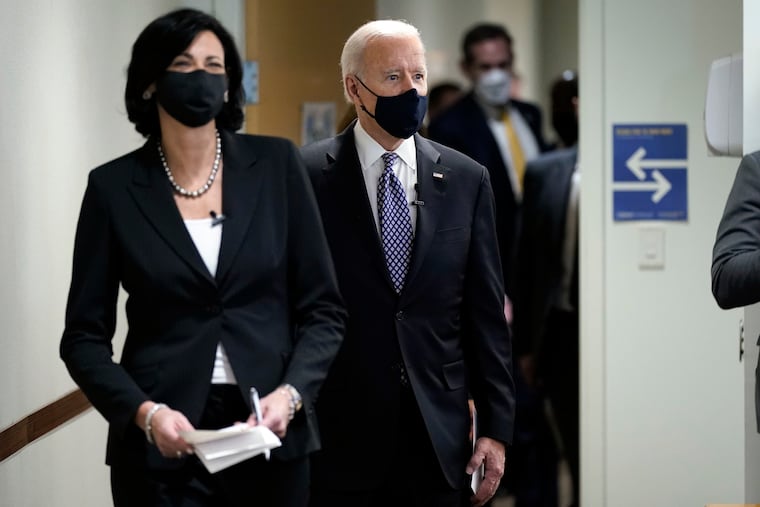Eviction filings are at a historic low. Philly has 90 days to keep it that way. | Editorial
There is no reason for Philadelphia to go back to 20,000 eviction filings a year.

Philadelphia has a unique opportunity to completely change the eviction landscape — but the clock is ticking.
Just three days before the CDC’s nationwide eviction moratorium expired, President Joe Biden’s White House announced that the critical protection for renters will extend through June. The Centers for Disease Control and Prevention first issued the temporary order to halt evictions on Sept. 4, and its most recent extension was set to expire March 31. In addition to the extension, the White House announced that the Consumer Financial Protection Bureau is going to take a more active role in enforcing the moratorium.
» READ MORE: Black Philadelphia renters face eviction at more than twice the rate of white renters
In a press conference on Monday, CDC chief Rochelle Walensky reiterated the importance of preventing evictions in a pandemic as “a key step in helping to stop the spread of COVID-19.”
The impact of evictions is obvious in a pandemic: people kicked out of their house can’t stay safe or quarantine at home. But an eviction is always a public health hazard with devastating consequences. A recent study from Princeton University’s Eviction Lab found that babies born to mothers who had an eviction filed against them while pregnant had worse outcomes compared with other mothers who experienced eviction.
In a year marked by complex and profound challenges, Philadelphia was able to positively manage evictions, with a low rate of eviction filings compared with other cities. For example: Since March 15, 2020, when the pandemic shut down courts nationwide, Philly’s landlords filed about 4,700 evictions. In comparison, according to Eviction Lab data, landlords in similarly sized Phoenix filed 31,000 evictions.
There are multiple reasons for the low eviction filing rate.
Last summer, City Council passed the Emergency Housing Protection Act — a package of bills championed by Councilmembers Kendra Brooks, Jamie Gauthier, and Helen Gym — to halt evictions and create the Eviction Diversion Program, among other protections. When CARES Act rental assistance money arrived, the administration quickly created PHLRentAssist, a program that has already dispersed $65 million. Municipal Court imposed a moratorium on the execution of evictions.
With this infrastructure in place, all stakeholders involved, and new rental assistance money from the American Rescue Plan, Philadelphia is uniquely situated to make its currently low eviction rate the new norm.
» READ MORE: Solving landlord-tenants disputes outside of court and without eviction should be the norm. | Editorial
There is a concrete step to achieve that reality: making the Eviction Diversion Program permanent. The program, which requires that landlords go through mediation before filing for eviction in court, is expiring at the end of the month. Since September, the program held more than 1,000 mediations; 91% were able to reach an agreement, all while avoiding the harmful eviction filing on the tenant’s record. On March 23, 10 members of Council sent a letter to the leadership of Municipal Court asking them to institutionalize the program as part of the court process.
Evictions are a driver of poverty, not just a result of it. If Philadelphia is serious about cutting poverty, it needs to seize on the good work done in the past year.
To report violations of the CDC moratorium, go to: www.consumerfinance.gov/complaint/ or call 855-411-2372. For eviction prevention resources in Philadelphia, visit: www.phillytenant.org/pepp/.